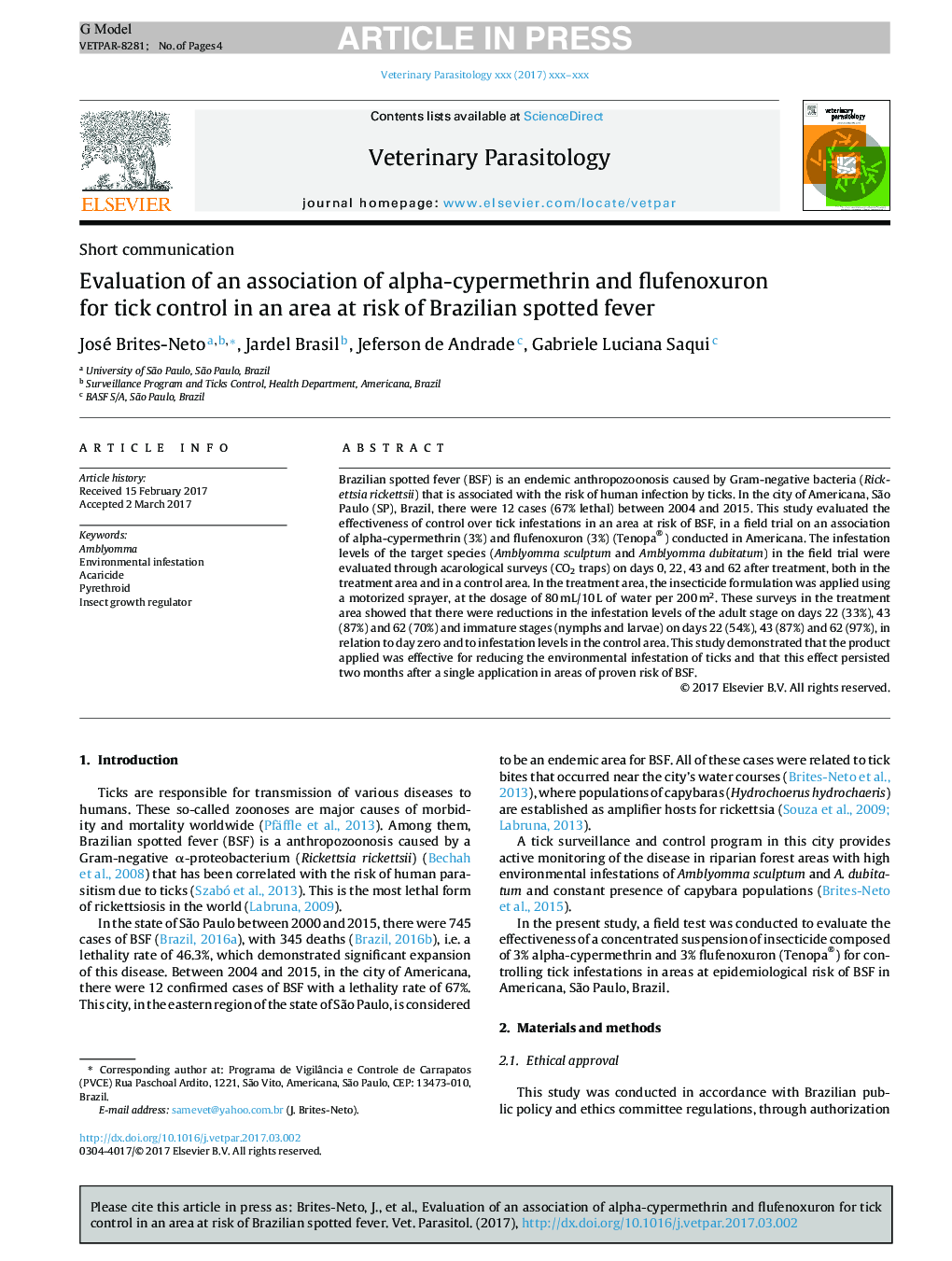| Article ID | Journal | Published Year | Pages | File Type |
|---|---|---|---|---|
| 5545737 | Veterinary Parasitology | 2017 | 4 Pages |
Abstract
Brazilian spotted fever (BSF) is an endemic anthropozoonosis caused by Gram-negative bacteria (Rickettsia rickettsii) that is associated with the risk of human infection by ticks. In the city of Americana, São Paulo (SP), Brazil, there were 12 cases (67% lethal) between 2004 and 2015. This study evaluated the effectiveness of control over tick infestations in an area at risk of BSF, in a field trial on an association of alpha-cypermethrin (3%) and flufenoxuron (3%) (Tenopa®) conducted in Americana. The infestation levels of the target species (Amblyomma sculptum and Amblyomma dubitatum) in the field trial were evaluated through acarological surveys (CO2 traps) on days 0, 22, 43 and 62 after treatment, both in the treatment area and in a control area. In the treatment area, the insecticide formulation was applied using a motorized sprayer, at the dosage of 80 mL/10 L of water per 200 m2. These surveys in the treatment area showed that there were reductions in the infestation levels of the adult stage on days 22 (33%), 43 (87%) and 62 (70%) and immature stages (nymphs and larvae) on days 22 (54%), 43 (87%) and 62 (97%), in relation to day zero and to infestation levels in the control area. This study demonstrated that the product applied was effective for reducing the environmental infestation of ticks and that this effect persisted two months after a single application in areas of proven risk of BSF.
Related Topics
Life Sciences
Agricultural and Biological Sciences
Animal Science and Zoology
Authors
José Brites-Neto, Jardel Brasil, Jeferson de Andrade, Gabriele Luciana Saqui,
